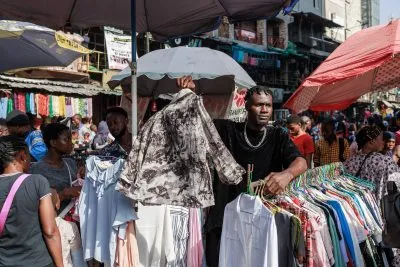Banque Extèrieure d’Algérie and Investec South Africa remain in tenth and eighth spots respectively, but the only bank from outside South Africa and North Africa in the top 10 is Nigeria’s Zenith Bank, despite a fall in Tier 1 capital from $2.9bn to $2.7bn over the course of our 2013 and 2014 surveys.
From these figures, it would be easy to get the impression that the African banking sector has been fairly flat, with as many losers as winners. In fact, there are now 26 Africans banks with Tier 1 capital of more than $1bn, up from just 21 last year. Similarly, Stanbic IBTC Holdings PLC needed capital of $493m to take 50th position this year, well up from the $382m Banque du Caire registered in the same ranking last year.
In the lower echelons of our rankings, Union Bancaire pour le Commerce et l’Industrie took 100th position last year with $135m but the benchmark of $171m was needed to make it into the table this year, an honour that goes to Egyptian Gulf Bank.
The State Bank of india (SBI) is now looking at expanding into the larger community in South Africa and further into the corporate market
The geographical breakdown of the banks in our Top 100 is also of great interest. Given the political upheaval that has affected North Africa in recent years, it is surprising that the region boasts 47 companies in the Top 100, up from 42 last year. Most of these places have been taken from Southern Africa, which now has 23 in the Top 100, down from 28 last year. Central and West Africa has 18, down from 20, while Eastern Africa increases its representation from 10 to 12.
African banks spread their wings
The process of cross-border investment is continuing apace. What was once a series of distinct domestic markets is now becoming more closely integrated, as some of the larger banks in the biggest markets invest in neighbouring territories.
Regulation remains distinctly domestic in nature and trade between African states is still limited but African banks are gearing up for a more rapid reduction in trade barriers. Perhaps more importantly in the short term, they are also seeking to gain market share in rapidly growing economies and indeed growth of some of these new subsidiaries is already outpacing the core operations of some of Africa’s biggest banks .
In 2011, Standard Bank Group announced that it would sell many of its non-African assets in order to fund acquisitions within the continent. It has followed through on this pledge and is to apply for a banking licence in Côte d’Ivoire next year. It hopes to set up an Ivorian subsidiary that can expand across the CFA franc zone in West Africa.
Want to continue reading? Subscribe today.
You've read all your free articles for this month! Subscribe now to enjoy full access to our content.
Digital Monthly
£8.00 / month
Receive full unlimited access to our articles, opinions, podcasts and more.
Digital Yearly
£70.00 / year
Our best value offer - save £26 and gain access to all of our digital content for an entire year!

 Sign in with Google
Sign in with Google 





